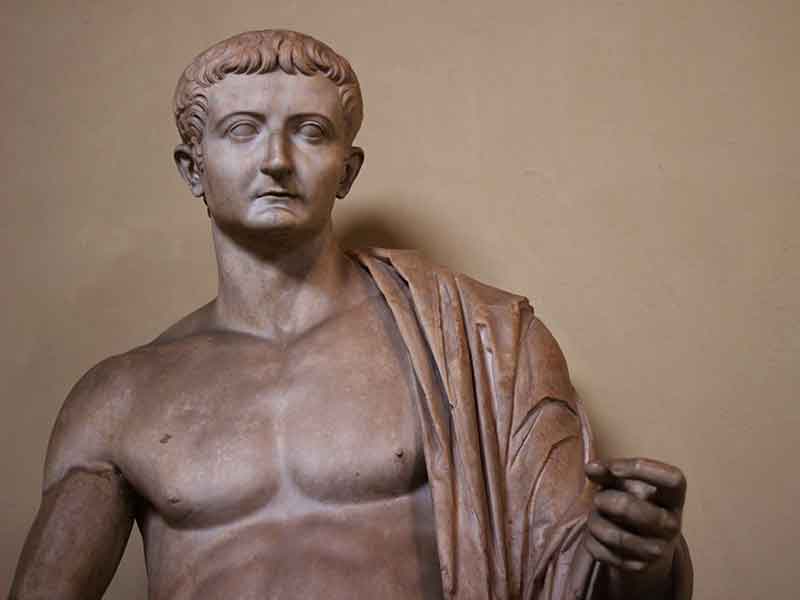Proud to introduce to you Emperor Tiberius
Emperor Tiberius: A Complex Legacy
Emperor Tiberius, born Tiberius Julius Caesar Augustus, was the second Roman Emperor of the Julio-Claudian dynasty, ruling from 14 to 37 CE.
His reign was marked by both significant accomplishments and a controversial reputation.
Here is an overview of his critical role, accomplishments, and death:
Adoption
Adopted son of Augustus
Emperor
From 14 to 37 CE
Death
March 16, 37 CE, in Capri
Critical Role
Tiberius was the adopted son of Augustus, the first Roman Emperor, and succeeded him upon his death in 14 CE.
He sought to preserve the imperial institutions and boundaries established by Augustus.
Tiberius played politics with the Senate and maintained a delicate balance of power between the emperor and the Senate.
Accomplishments
Tiberius had a long military career before becoming emperor, demonstrating bravery and military prowess.
In his early years as emperor, Tiberius followed the example of his stepfather Augustus, granting respect and authority to the Roman Senate. He was known as a diligent and scrupulous administrator.
Tiberius maintained the borders and finances of the Roman Empire well, avoiding major conflicts, wars, or campaigns.
He commissioned the construction of many new roads, improving the infrastructure of Rome.
Death
In his later years, Tiberius became increasingly miserable and gloomy, earning more enemies than friends as he withdrew from Rome and spent much of his time in self-imposed exile on the island of Capri.
Tiberius died on March 16, 37 CE, in Capri.
Power
While Tiberius sought to preserve the empire and maintain a balance of power, his reign was marred by his withdrawal from public life and his reputation for being a tyrannical recluse in his later years.
Despite his accomplishments as a military leader and administrator, his legacy is often overshadowed by his controversial behavior and the reign of terror he inflicted on Rome.
Critical role in the Roman Empire
Emperor Tiberius played a critical role in the Roman Empire, serving as the second emperor of the Julio-Claudian dynasty from 14 to 37 CE. Here are some of his significant contributions:
Preservation of Imperial Institutions: Tiberius sought to preserve the imperial institutions and boundaries established by Augustus, his adoptive father.
Military Career: Tiberius had a long military career before becoming emperor, demonstrating bravery and military prowess.
Effective Administration: Tiberius was known as a diligent and scrupulous administrator, and he maintained the borders and finances of the Roman Empire well, avoiding major conflicts, wars, or campaigns.
Construction Projects: Tiberius commissioned the construction of many new roads, improving the infrastructure of Rome.
Reclusive Behavior: In his later years, Tiberius became increasingly reclusive and spent much of his time in self-imposed exile on the island of Capri.
Difficult Relationship with the Senate: Tiberius had a difficult, resentful relationship with the Senate and suspected many plots against him.
Succession Planning: Little was done to plan or secure Tiberius' succession, leading to political instability after his death.
Emperor Tiberius summary
Emperor Tiberius played a critical role in the transition of power from Augustus to the Julio-Claudian dynasty.
His accomplishments as a military leader and administrator were notable, but his later years and reputation have left a complex and controversial legacy in Roman history.

Content created by:
Alex Costin
Results driven services:
Digital Marketing
Need my expertise?
Contact me
No tracking cookies!
General information purposes only!
Business partners offers (backlinks):
Search Engine Optimisation agency:
SEO
Explore this city secret guide:
Barcelona
Outdoor recreational activity:
Canyoning
Wide range of financial services:
Chartered Accountant
Copyright © 2023 Alex Costin